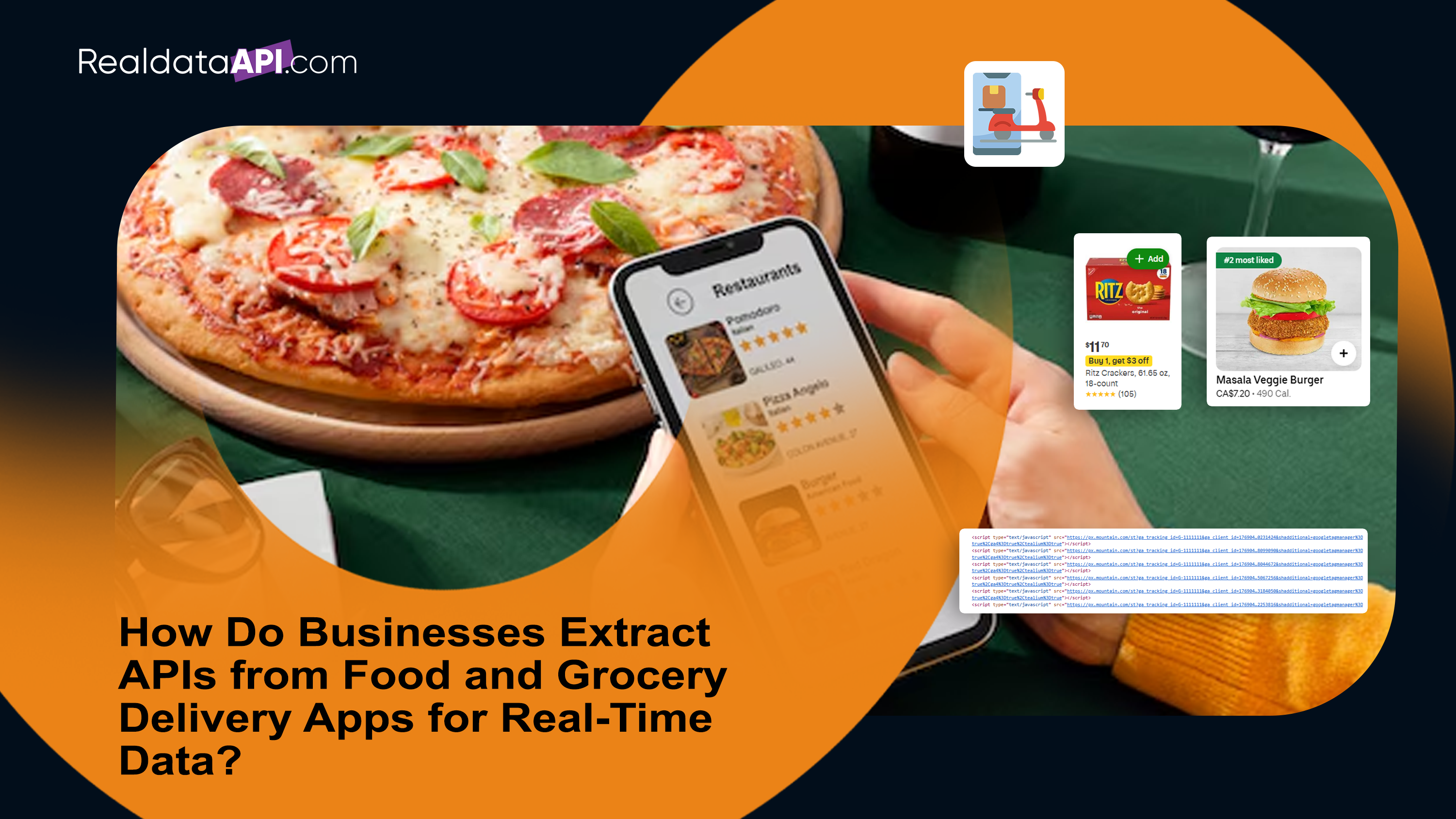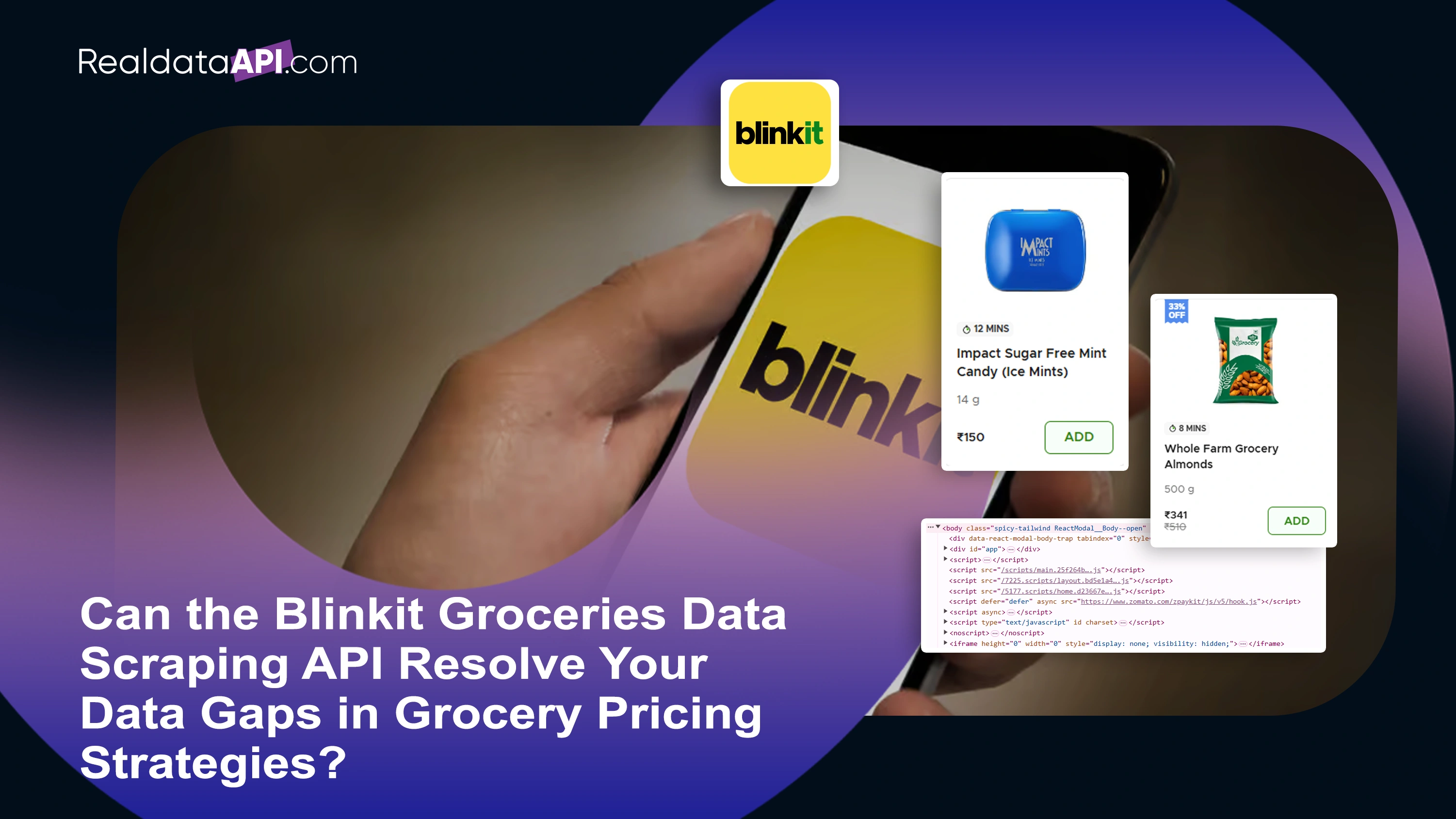
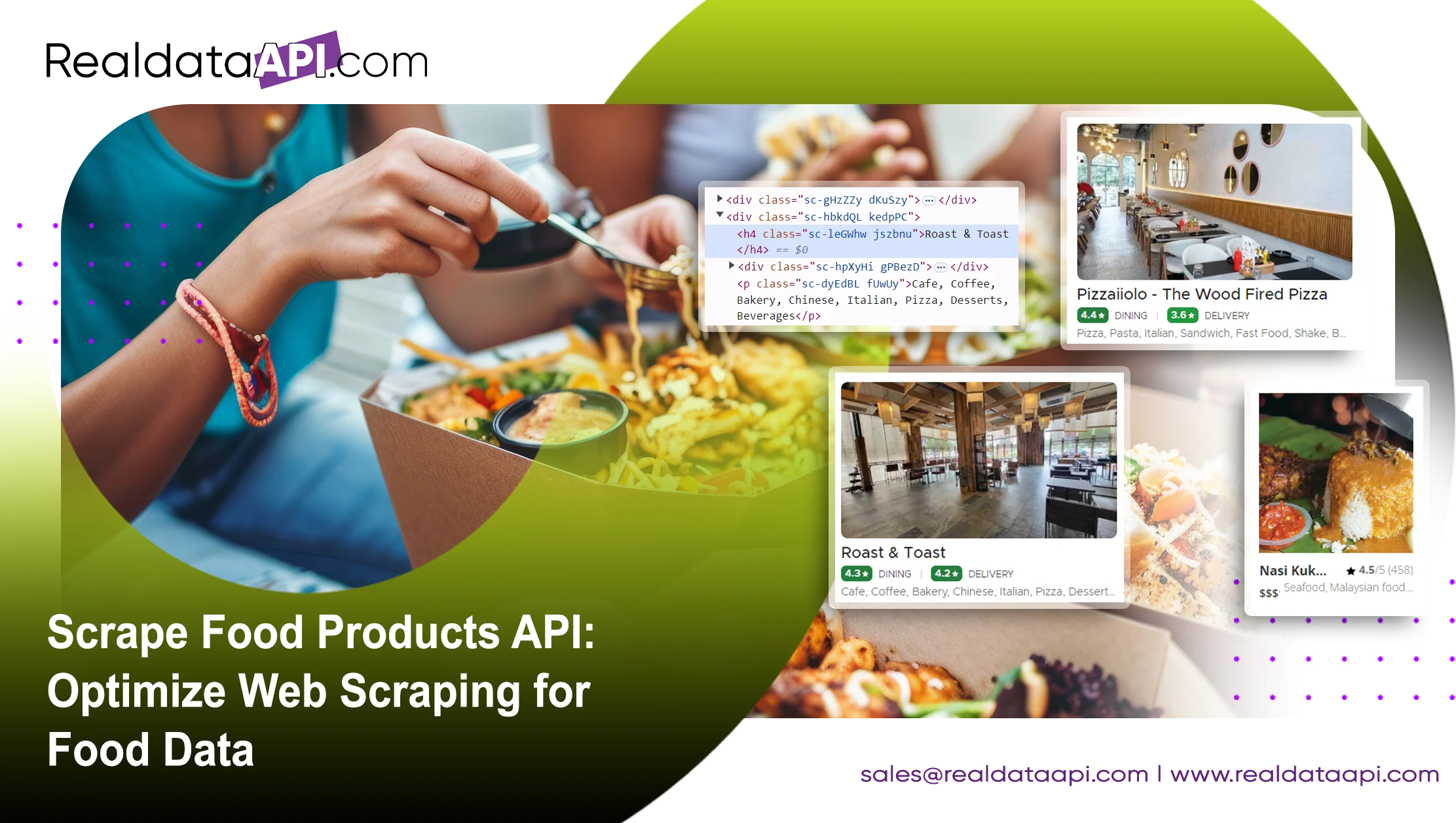
Introduction
In the digital age, the ability to access and analyze data efficiently is a critical asset for businesses across all industries. For those involved in the food industry, the potential to scrape food products API cannot be overstated. Whether you're a startup looking to gain market insights or an established company aiming to optimize your product offerings, extracting data through food products APIs in India offers unparalleled opportunities. This blog will provide an in-depth guide to extract food products API, highlighting its importance, best practices, and potential applications.
Understanding Food Products API
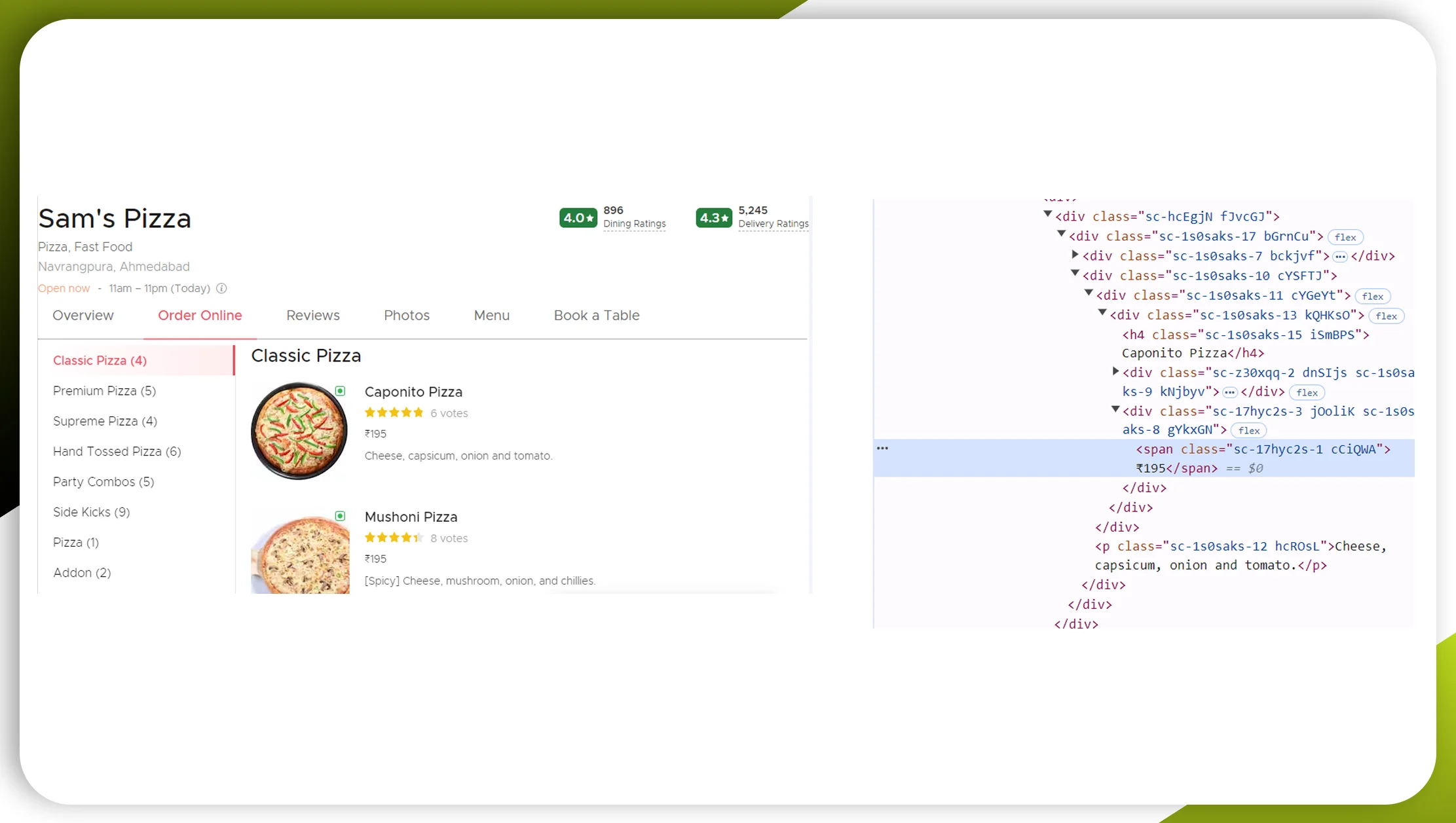
Before diving into the process of scraping food products API , it's essential to understand what an API (Application Programming Interface) is. In simple terms, an API is a set of rules that allows different software entities to communicate with each other. When it comes to food products, APIs can provide data on a wide range of parameters such as product names, ingredients, nutritional information, prices, availability, and even consumer reviews.
Why Scrape Food Products API?
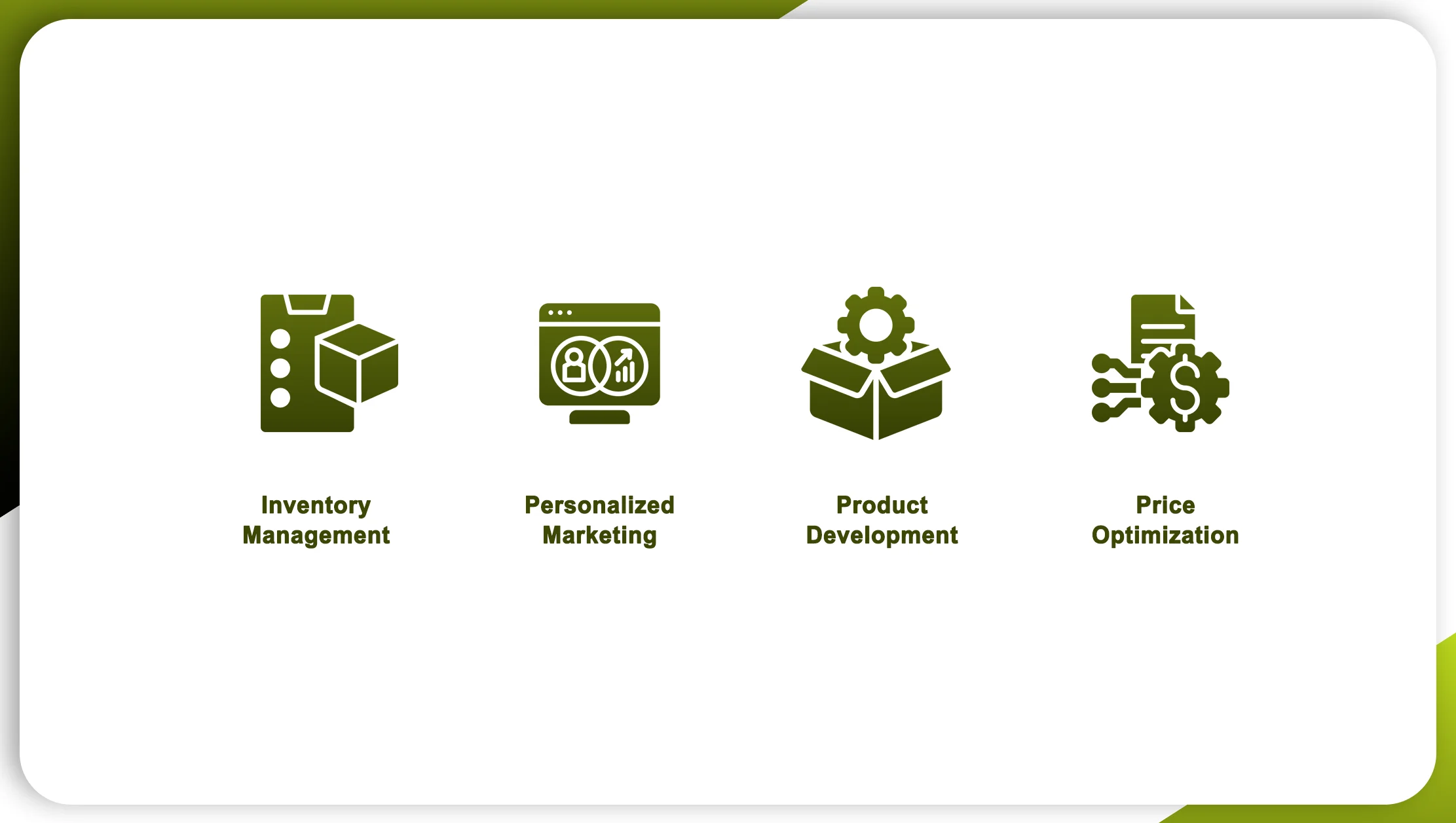
The value of food products API extraction lies in the wealth of data that can be accessed and analyzed. This data can be used for various purposes, including:
Market Research and Analysis: By scraping food products API, businesses can track market trends, monitor competitor offerings, and analyze consumer preferences. This information is invaluable for making informed decisions about product development, pricing strategies, and marketing campaigns.
Inventory Management: Accurate and up-to-date data from food products API can help businesses optimize their inventory levels, reducing the risk of stockouts or overstocking.
Personalized Marketing: With detailed data on consumer preferences and buying patterns, businesses can create highly targeted marketing campaigns that resonate with specific customer segments.
Product Development: Access to comprehensive data on existing food products can inspire new product ideas and improvements, helping businesses stay ahead of the competition.
Price Optimization: Food products API collection allows businesses to monitor pricing trends and adjust their prices in real-time, ensuring they remain competitive in the market.
Key Benefits of Scraping Food Products API in India
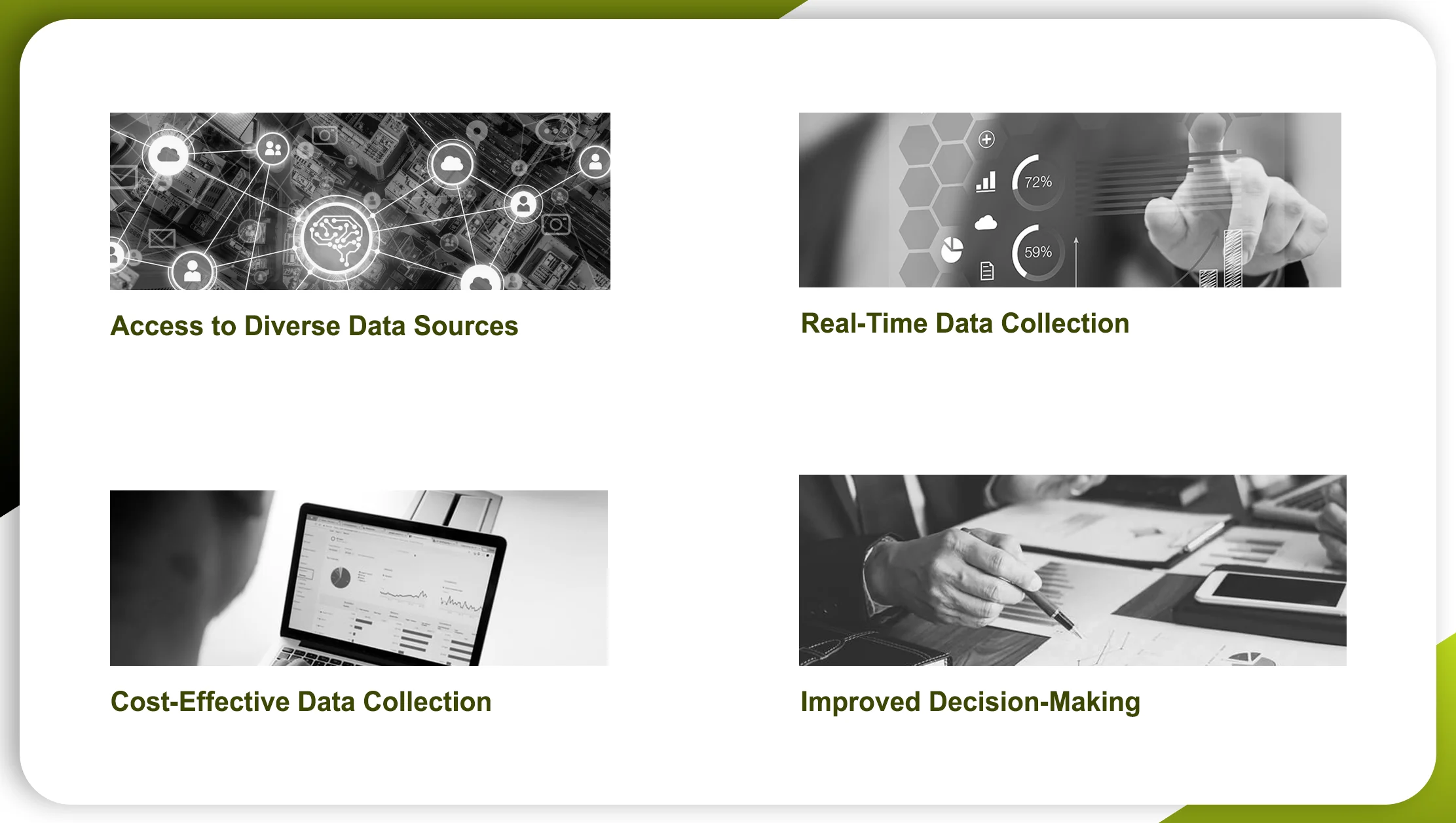
India's diverse and rapidly growing food industry presents unique challenges and opportunities for businesses. By leveraging food products API scraping, companies can gain several key benefits:
Access to Diverse Data Sources: India's food industry is vast, with countless products, brands, and regional variations. Food products API extraction allows businesses to access data from a wide range of sources, providing a comprehensive view of the market.
Real-Time Data Collection: In a dynamic market like India's, having access to real-time data is crucial. Scrape food products API enables businesses to stay updated on the latest market developments and respond quickly to changes.
Cost-Effective Data Collection: Traditional methods of data collection, such as surveys and market research , can be time-consuming and expensive. Extract food products API offers a more cost-effective solution, allowing businesses to gather large volumes of data quickly and efficiently.
Improved Decision-Making: With access to detailed and accurate data, businesses can make more informed decisions, reducing the risk of costly mistakes and improving overall efficiency.
How to Scrape Food Products API: A Step-by-Step Guide
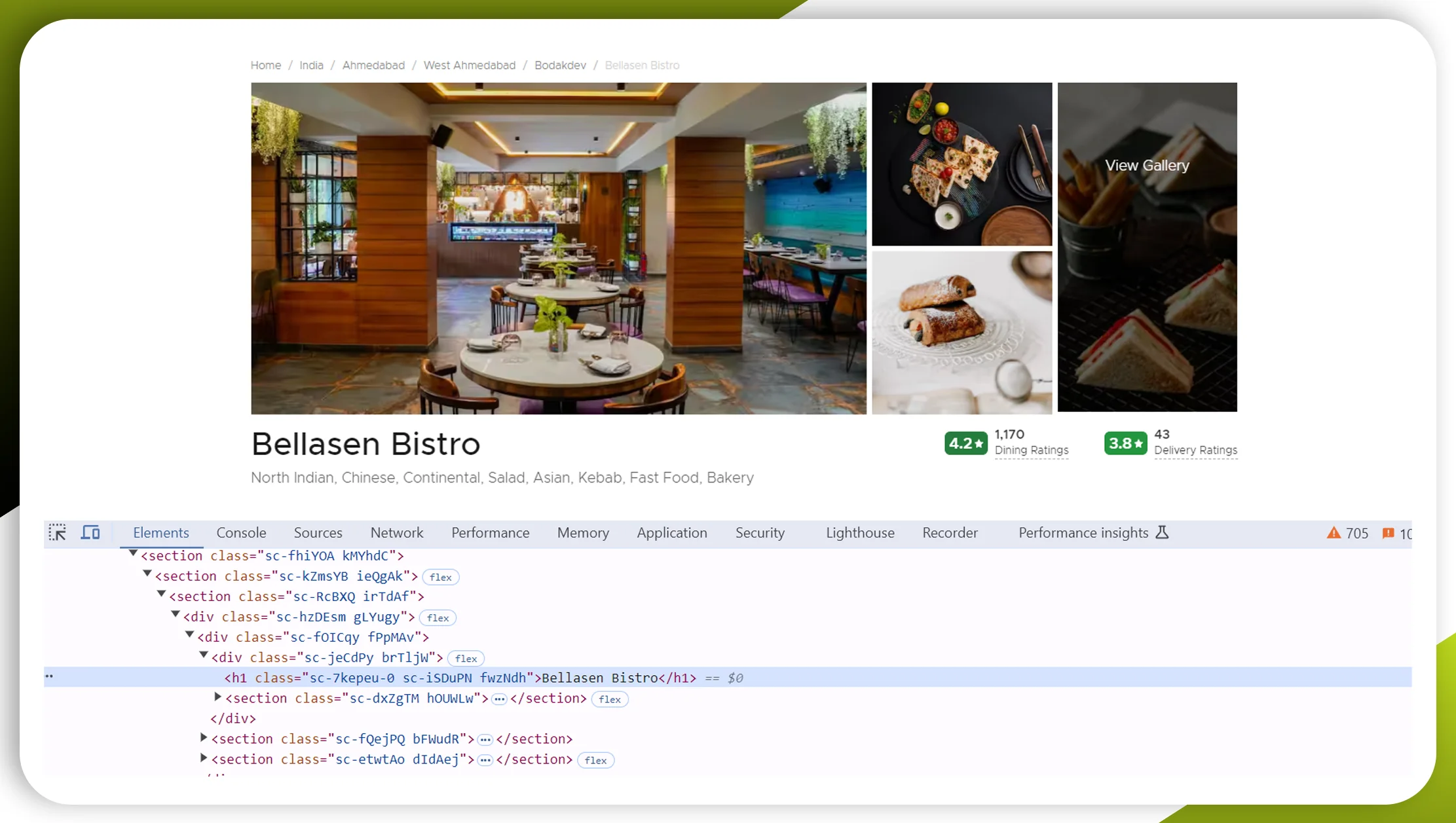
Food products API collection requires a combination of technical skills and strategic planning. Here’s a step-by-step guide to help you get started:
1. Identify the Right API
The first step to extract food products API is identifying the right API for your needs. Several APIs provide access to food product data in India, each with its unique features and data sets. When choosing an API, consider factors such as data accuracy, coverage, and the specific information you need.
2. Obtain API Access
Once you've identified the right API, the next step is to obtain access. Most APIs require you to sign up for an API key, which is used to authenticate your requests. Some APIs offer free access with limited features, while others may require a subscription for full access.
3. Understand the API Documentation
Before you start scraping, it's essential to familiarize yourself with the API documentation. The documentation will provide detailed information on how to interact with the API, including available endpoints, request parameters, and response formats. Understanding the documentation is crucial for ensuring that your API requests are correctly formatted and that you're retrieving the desired data.
4. Set Up Your Scraping Environment
To scrape food products API, you'll need a suitable environment for running your code. Depending on your programming skills, you can use languages like Python, JavaScript, or PHP. Python is a popular choice due to its simplicity and the availability of powerful libraries like Requests and BeautifulSoup for handling API requests and data parsing.
Here’s a basic Python setup for scraping an API:
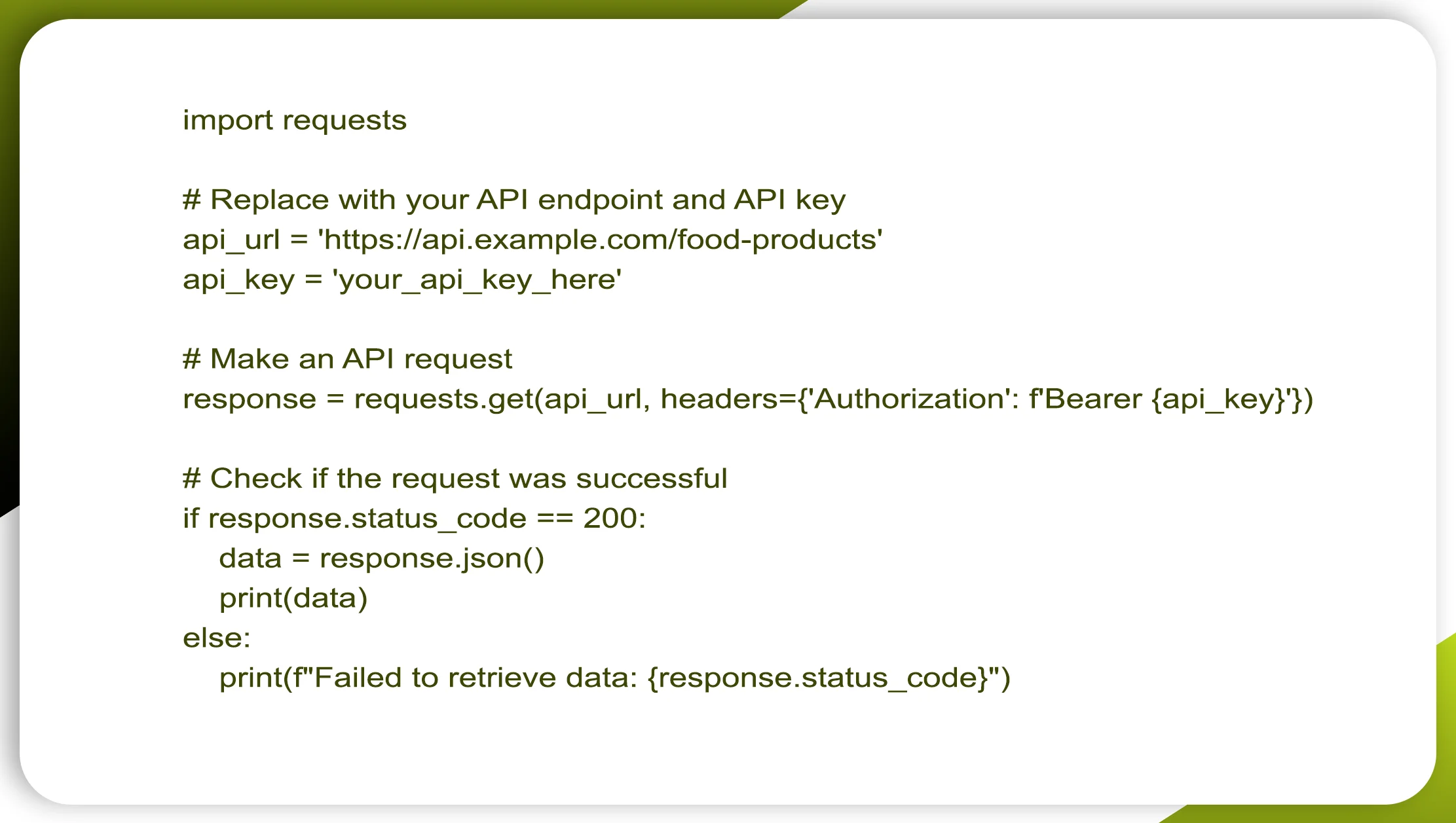
5. Make API Requests
With your environment set up, you can start making API requests. Depending on the API, you may be able to request data on specific products, categories, or search for products based on criteria like ingredients or nutritional content. Use the API documentation to determine the correct parameters for your requests.
6. Parse and Store the Data
After making a successful API request, the next step is to parse the data and store it in a suitable format. Most APIs return data in JSON format, which can be easily parsed and stored in a database or a file like CSV or JSON.
Here’s an example of parsing JSON data in Python:
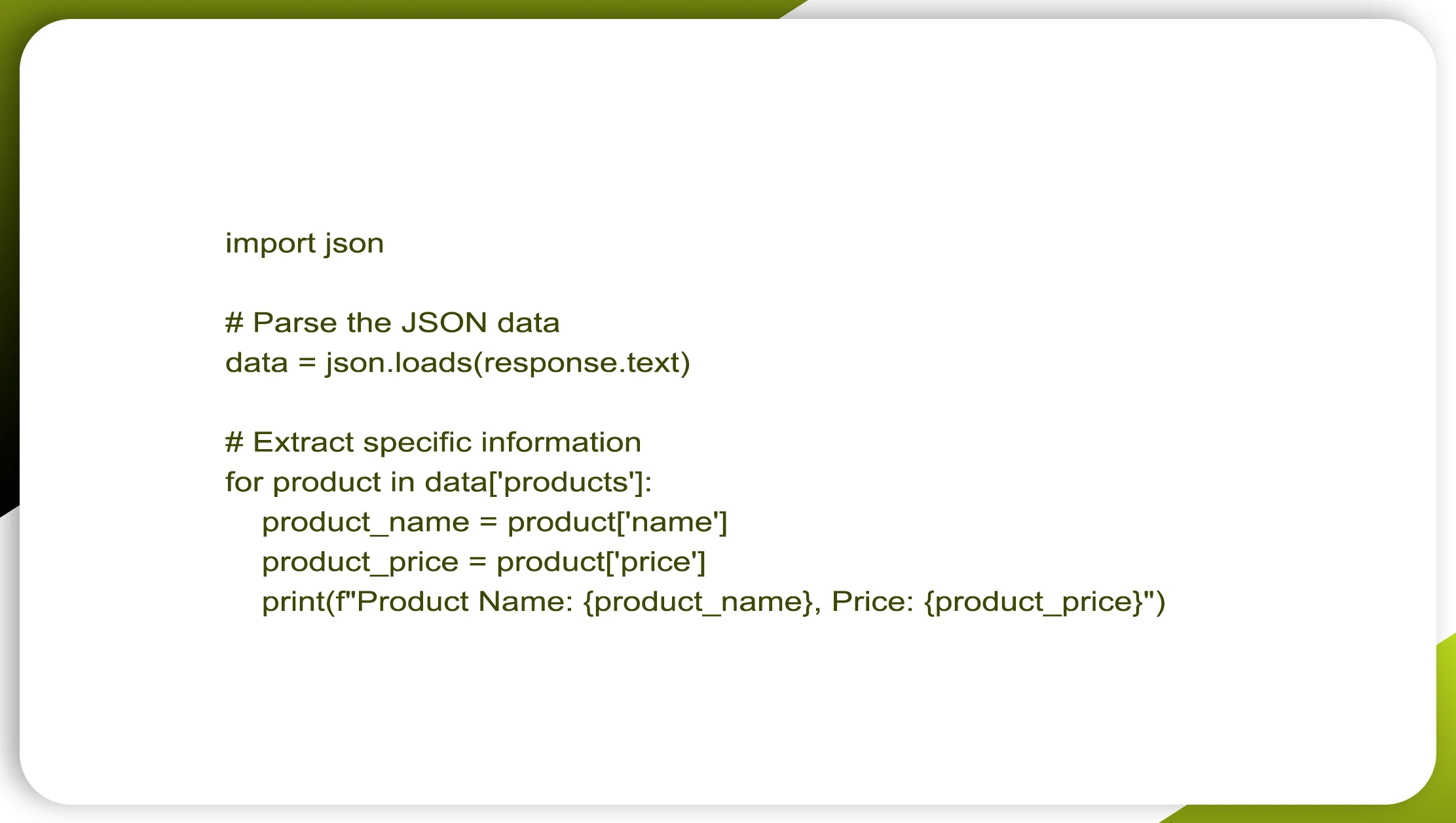
7. Automate the Scraping Process
To continuously monitor the market, consider automating your scraping process. You can schedule your script to run at regular intervals using tools like Cron (on Unix-based systems) or Task Scheduler (on Windows). Automation ensures that you always have up-to-date data without manual intervention.
8. Analyze and Use the Data
Once you’ve collected the data, the final step is to analyze it and apply the insights to your business. This might involve using data analytics tools to identify trends, adjust your pricing strategy, optimize inventory levels, or develop new products.
Ethical Considerations and Best Practices
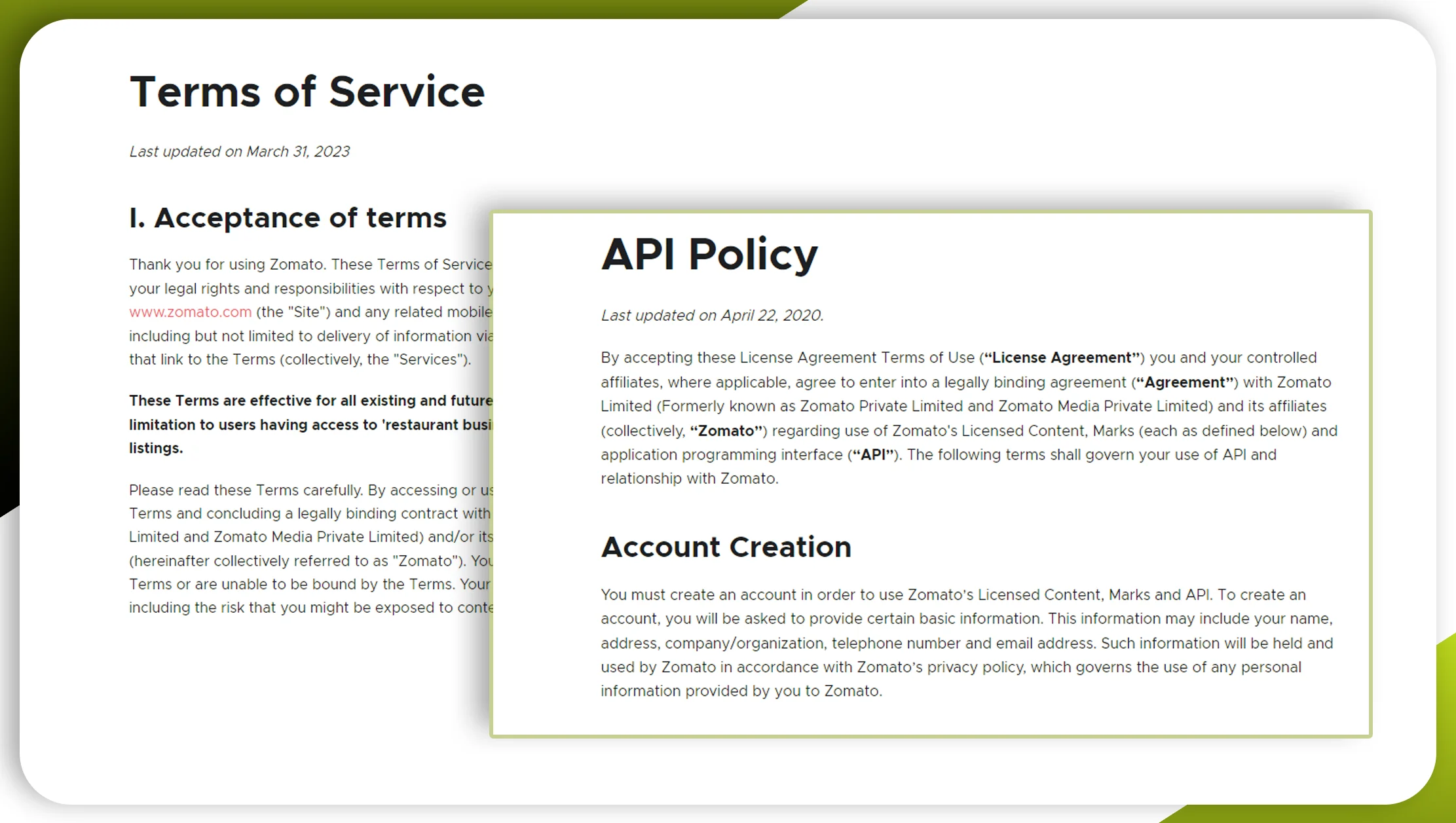
Ethical Considerations and Best Practices
While scraping food products API offers significant benefits, it’s essential to approach it ethically and responsibly. Here are some best practices to keep in mind:
Respect API Rate Limits: Most APIs have rate limits to prevent excessive use. Ensure that your scraping activities stay within these limits to avoid being blocked or blacklisted.
Check the API’s Terms of Service: Before scraping, review the API’s terms of service to ensure that your activities comply with their policies.
Ensure Data Accuracy: While APIs are a valuable data source, it’s crucial to verify the accuracy of the data you collect, especially when making business decisions based on it.
Protect Sensitive Information: If you’re collecting or handling sensitive data, ensure that it’s stored securely and complies with relevant data protection regulations.
Conclusion:The Future to Extract Food Products API in India
As India’s food industry continues to grow and evolve, the ability to access and analyze data through scrape food products API will become increasingly important. Whether you’re looking to gain a competitive edge, optimize your operations, or develop new products, the insights gained from API data can drive significant business growth.
For businesses in India, partnering with a data collection and analysis company like Real Data API can provide the expertise and resources needed to maximize the benefits to extract food products API. By leveraging cutting-edge technology and best practices, Real Data API helps businesses unlock the full potential of their data, enabling them to thrive in an increasingly competitive market.
Are you ready to harness the power of scraping food products API for your business? Contact Real Data API today to learn more about how we can help you achieve your goals!




